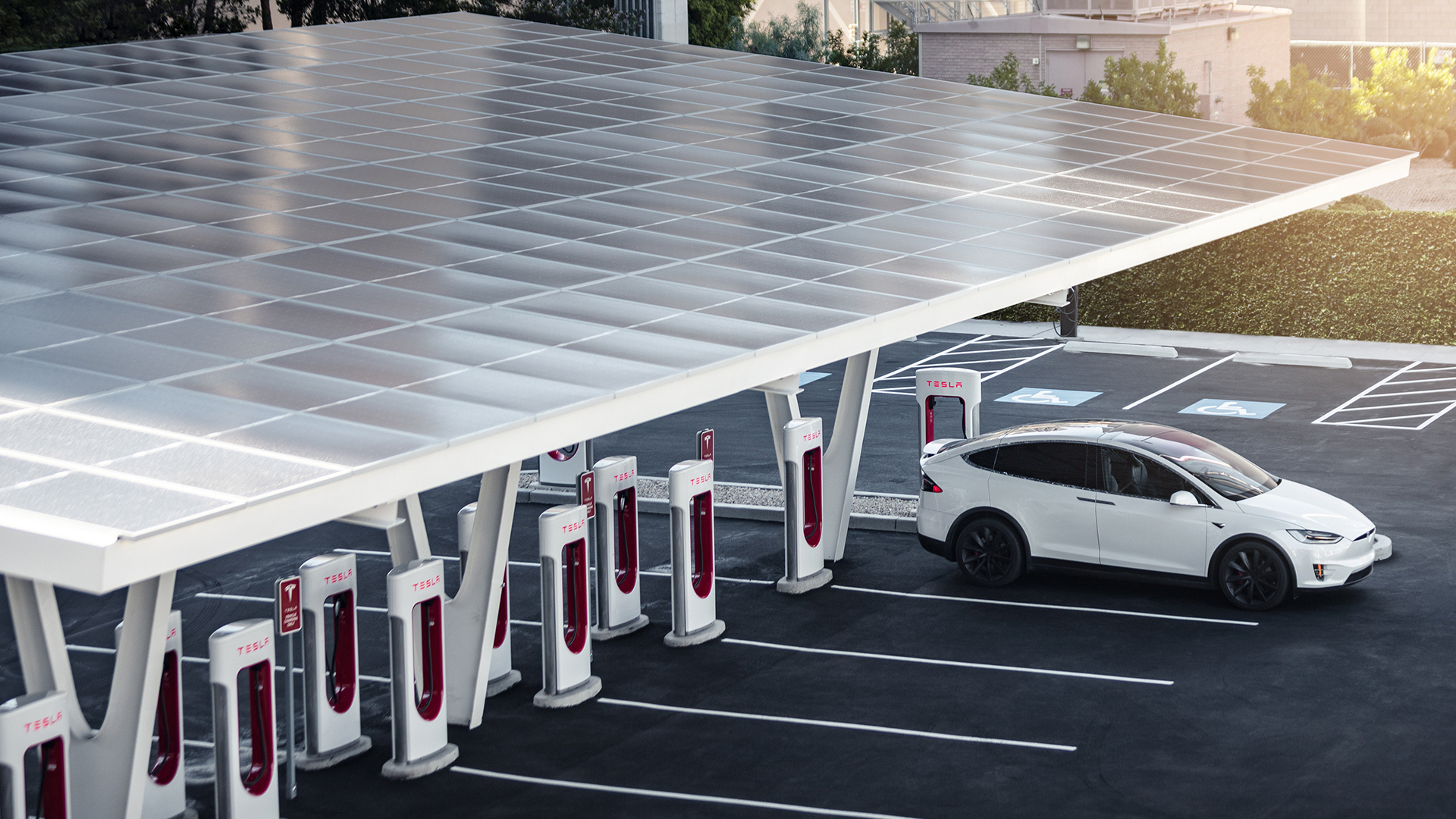Kia and Hyundai announce Tesla EV Supercharger compatibility for next year
All EVs will have Tesla’s North American Charging Standard port

Kia and Hyundai have joined the growing list of auto manufacturers switching to Tesla's North American Charging Standard (NACS) port.
The South Korean brands have announced that all new EVs produced in or after Q4 in 2024 will use Tesla's charging tech, opening up thousands of new charging facilitates to owners. The move follows in the tire tracks of Ford, General Motors, Mercedes-Benz, Honda and even Tesla rivals Rivian, all of whom have made similar announcements recently.
According to Kia, it also plans to make available CCS1-to-NACS (Combined Charging System) adapters to enable nearly all Kia EVs to charge on Tesla’s network, although it has said an additional cost may apply at dealer level.
This move opens up 12,000 Tesla Superchargers across the US, Canada and Mexico. On top of this, Kia EV owners will have access to autopay using Tesla’s Supercharger network via the Kia Connect app, once a software upgrade is completed later next year.
The Kia Connect app will also update its search functionality, in order to locate and navigate to available Tesla Superchargers through the EV infotainment system, with charger availability, status and pricing.
Tesla is still the top performing company for EV sales in the USA, but Kia, Hyundai and Genesis combined make the second largest powerhouse for EV sales.
Good news for EV buyers
The fact some of the biggest names in the automotive industry are switching to NACS is great news for the consumer, as this previously proprietary technology is slowly opening up to the general public, reducing range anxiety and generally making electric vehicle ownership sweeter.
Get daily insight, inspiration and deals in your inbox
Sign up for breaking news, reviews, opinion, top tech deals, and more.
Seeing as Tesla has been pioneering the technology, it comes as no surprise it has one of the most robust charging networks in North America, meaning we will likely see more manufacturers making the switch in the near future, with Volkswagen (a big seller in the US with its ID range) likely to cave in soon.
What’s more, CNN Business also pointed out this could be a win-win for Musk, as Tesla could argue it should have access to federal funds to support charging infrastructure, since the NACS is no longer just for charging its own vehicles.
Because, you know, Musk needs a bit more money.
You might also like

Leon has been navigating a world where automotive and tech collide for almost 20 years, reporting on everything from in-car entertainment to robotised manufacturing plants. Currently, EVs are the focus of his attentions, but give it a few years and it will be electric vertical take-off and landing craft. Outside of work hours, he can be found tinkering with distinctly analogue motorcycles, because electric motors are no replacement for an old Honda inline four.